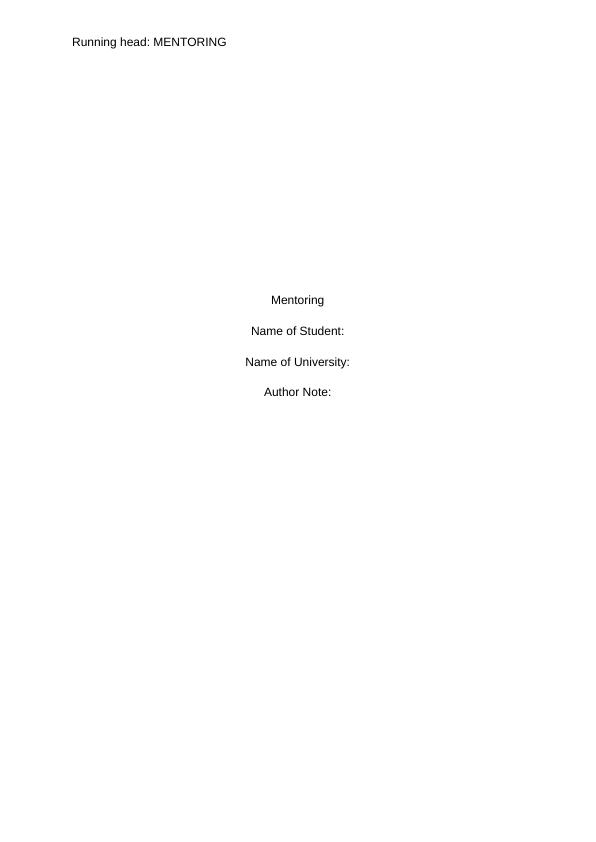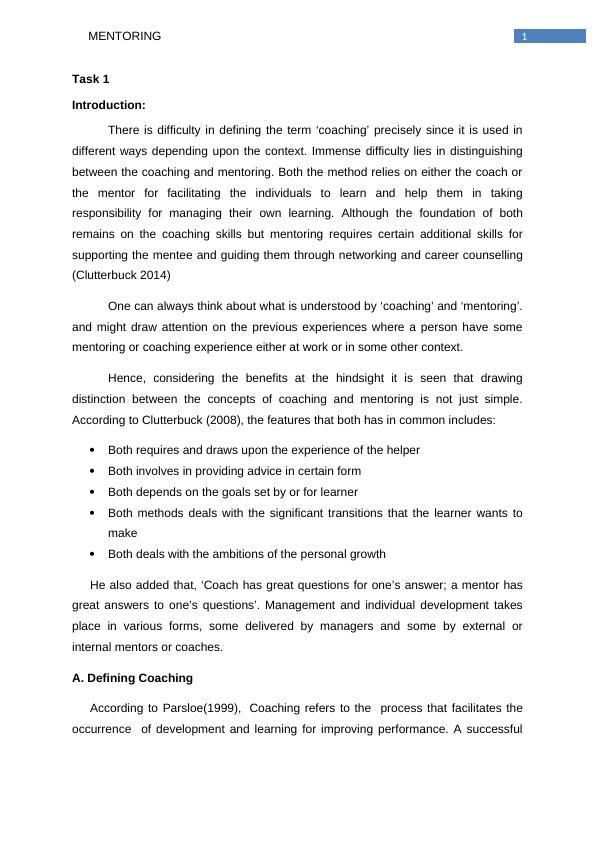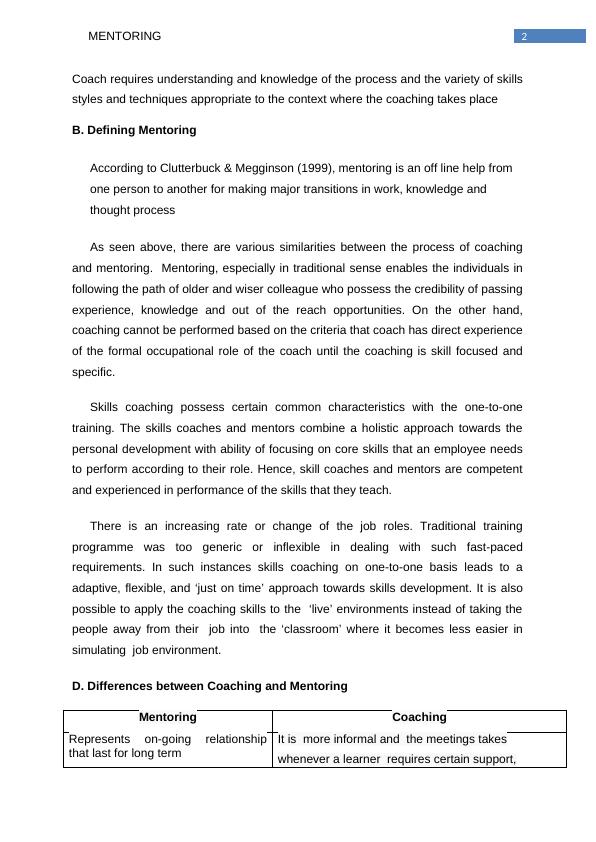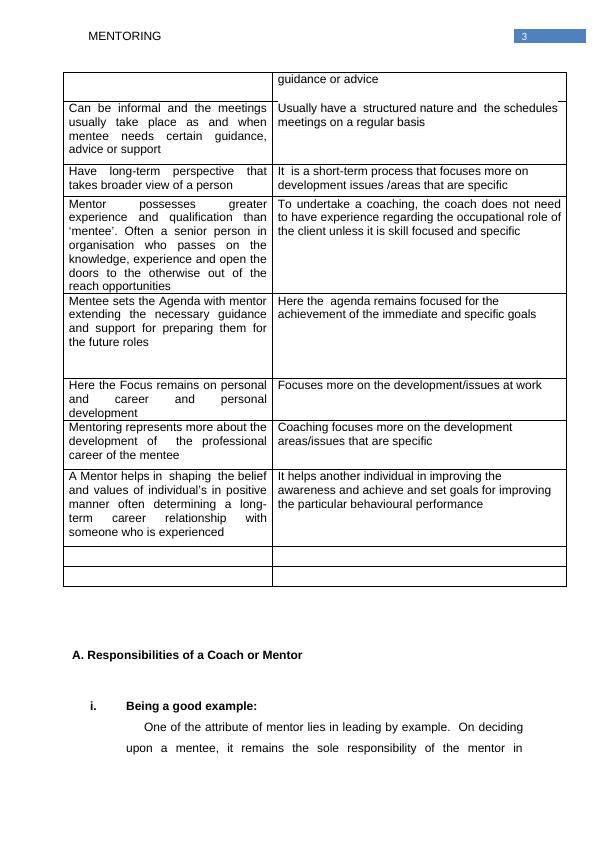Coaching and Mentoring: Understanding the Differences and Similarities
Exploring the definitions and distinctions between coaching and mentoring, and the common features they share.
14 Pages3398 Words392 Views
Added on 2023-06-11
About This Document
This article discusses the differences and similarities between coaching and mentoring, their definitions, responsibilities, and effectiveness. It also provides strategies and resources for helping students and mentions agencies that work with learning mentors.
Coaching and Mentoring: Understanding the Differences and Similarities
Exploring the definitions and distinctions between coaching and mentoring, and the common features they share.
Added on 2023-06-11
ShareRelated Documents
End of preview
Want to access all the pages? Upload your documents or become a member.
Coaching and Mentoring within an Organisational Context
|10
|3587
|107
Teaching Education Report: Coaching vs Mentoring, Strategies for Improvement, and Action Plan
|11
|2525
|466
Presentation on Coaching and Mentoring
|9
|2496
|375
Mentoring and Coaching Assignment
|9
|2272
|889
Implementing Coaching and Mentoring in HR
|17
|4606
|408
Working with Individual Learners (Doc)
|13
|2982
|353




